 April 2016 in “Journal of Investigative Dermatology”
April 2016 in “Journal of Investigative Dermatology” Vitamin D can reduce skin inflammation caused by UV rays by enhancing cell "fitness" and skin repair.
 January 2016 in “Elsevier eBooks”
January 2016 in “Elsevier eBooks” The conclusion is that grasping how cells determine their roles through evolution is key, with expected progress from new research models and genome editing.
July 2013 in “DeckerMed Family Medicine” The document's conclusion cannot be provided because the document is not readable or understandable.
July 2013 in “DeckerMed Medicine” The document's conclusion cannot be provided because the document is not readable or understandable.
 January 2012 in “Yearbook of Dermatology and Dermatologic Surgery”
January 2012 in “Yearbook of Dermatology and Dermatologic Surgery” Taking finasteride daily can effectively and safely increase hair density and thickness for women with hair loss.
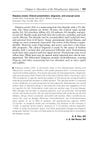 January 2012 in “Yearbook of Dermatology and Dermatologic Surgery”
January 2012 in “Yearbook of Dermatology and Dermatologic Surgery” Alopecia areata is a hair loss condition that often starts before age 30 and can affect various body parts, with unpredictable hair regrowth chances.
 January 2012 in “Yearbook of Dermatology and Dermatologic Surgery”
January 2012 in “Yearbook of Dermatology and Dermatologic Surgery” Some African American women experience central scalp hair loss, often linked to a history of fungal scalp infection.
January 2012 in “The Year book of dermatology” 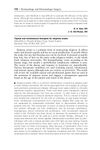 January 2012 in “The Year book of dermatology”
January 2012 in “The Year book of dermatology” Many treatments for alopecia areata have inconsistent results; for under 10s, use minoxidil with a corticosteroid, and for over 10s, add ILC and consider diphenylcyclopropenone for widespread cases.
 January 2012 in “Yearbook of Dermatology and Dermatologic Surgery”
January 2012 in “Yearbook of Dermatology and Dermatologic Surgery” Studying acne-related syndromes helps us understand acne causes and can lead to new treatments.
 January 2012 in “Journal of the American Academy of Dermatology”
January 2012 in “Journal of the American Academy of Dermatology” 2011 dermatology discussions highlighted stem cell hair treatments, new lichen planopilaris therapies, skin side effects from cancer drugs, emerging allergens, and the link between food allergies and skin issues.
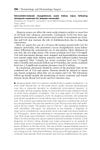 January 2012 in “The Year book of dermatology”
January 2012 in “The Year book of dermatology” A woman developed severe kidney injury from using simvastatin with ciclosporin, highlighting the need for careful monitoring when combining these drugs.
 January 2012 in “Yearbook of Dermatology and Dermatologic Surgery”
January 2012 in “Yearbook of Dermatology and Dermatologic Surgery” Low-dose isotretinoin is as effective as conventional doses for acne and has fewer side effects.
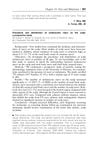 January 2011 in “Yearbook of Dermatology and Dermatologic Surgery”
January 2011 in “Yearbook of Dermatology and Dermatologic Surgery” Moles on the scalp are more common in people with more body moles and atypical moles, but not linked to balding.
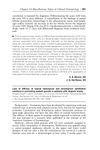 January 2010 in “Yearbook of Dermatology and Dermatologic Surgery”
January 2010 in “Yearbook of Dermatology and Dermatologic Surgery” Topical latanoprost and bimatoprost ophthalmic solutions don't help eyelash growth in patients with alopecia areata.
 January 2012 in “Yearbook of Dermatology and Dermatologic Surgery”
January 2012 in “Yearbook of Dermatology and Dermatologic Surgery” No significant difference in iron deficiency between women with or without hair loss.
 January 2012 in “The Year book of dermatology”
January 2012 in “The Year book of dermatology” Finasteride 5mg/day improves hair loss in normoandrogenic Asian women.
 July 2007 in “DOAJ (DOAJ: Directory of Open Access Journals)”
July 2007 in “DOAJ (DOAJ: Directory of Open Access Journals)” Female pattern hair loss, common in women, can be treated with oral antiandrogens and topical minoxidil, but these are more effective at preventing further loss than regrowing hair. Other helpful methods include counseling, cosmetic camouflage, and hair transplantation. Treatment must continue for effects to last and it may take up to 2 years to see results.
174 citations,
July 2003 in “The Journal of Clinical Endocrinology & Metabolism” Five new mutations in the androgen receptor gene were found, helping to understand androgen insensitivity syndrome better.
7 citations,
April 2011 in “American journal of obstetrics and gynecology” A woman's virilization symptoms were caused by her partner's use of testosterone cream, which resolved after they separated.
 4 citations,
April 2021 in “Experimental and Molecular Medicine”
4 citations,
April 2021 in “Experimental and Molecular Medicine” The conclusion is that certain genetic factors and blood types may affect COVID-19 severity, but changes in ACE2 and TMPRSS2 genes are not clearly linked to it.
 April 2024 in “Rheumatology”
April 2024 in “Rheumatology” A young woman with visual issues and other symptoms was diagnosed with lupus and antiphospholipid syndrome, and improved with treatment.
 January 2021 in “Figshare”
January 2021 in “Figshare” Metformin helps regenerate hair follicles in lab conditions.
January 2012 in “The Journal of Practical Medicine”  June 2024 in “Research Square (Research Square)”
June 2024 in “Research Square (Research Square)” Increased cell death and reduced cell growth in hair follicles contribute to baldness.
 September 2023 in “Stem Cells International”
September 2023 in “Stem Cells International” Substances from fat-derived stem cells can promote hair growth and counteract hormone-related hair loss by activating a key hair growth pathway.

Attractive women slightly worsened mood, green backgrounds improved mood, and older people had better moods.

Ayurvedic herbs may reduce side effects and improve effectiveness of cancer treatments.

Kalya Research is an AI tool that effectively finds and analyzes alternative medicine literature, saving researchers time.
 February 2020 in “Definitions”
February 2020 in “Definitions” Botanical lotion CG428 may help regrow hair and reduce scalp inflammation in chemotherapy patients.
























